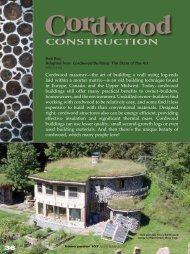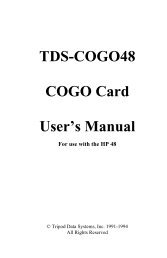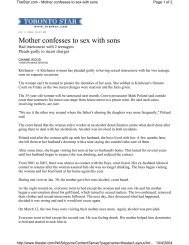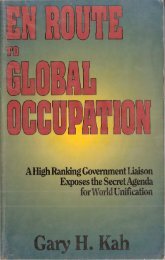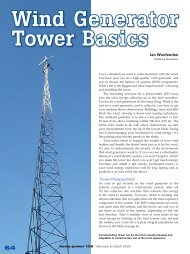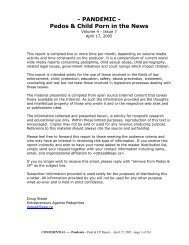G. Edward Griffin - The Fearful Master - PDF Archive
G. Edward Griffin - The Fearful Master - PDF Archive
G. Edward Griffin - The Fearful Master - PDF Archive
You also want an ePaper? Increase the reach of your titles
YUMPU automatically turns print PDFs into web optimized ePapers that Google loves.
FOREWORD<br />
On April 24, 1955, the Communist Daily Worker wrote:<br />
<strong>The</strong> United Nations has become an imposing institution with a fantastic<br />
pyramid of agencies and commissions, and an agenda each autumn of<br />
75 questions. . . . <strong>The</strong>re it stands--in its striking home of stone and steel<br />
and glass on the shores of the East River to which thousands of people<br />
come each week, in pilgrimages of peace and hope.<br />
This is one of those instances where the truth is sufficiently horrible that the Communist<br />
propagandists do not have to lie. In the two decades since the United Nations was<br />
created, it has expanded into a giant international bureaucracy with tentacles reaching into<br />
every sphere of human activity from matrimony to garbage collecting. Americans by the<br />
millions have indeed made the emotional pilgrimage and genuflected before the UN<br />
"shrine of peace." But, having looked at the United Nations, most of us have not seen. We<br />
have seen the building, and the flag, and pictures of meetings where delegates listen to<br />
each other over earphones; but we have not seen the real United Nations--its purpose, its<br />
philosophy, its ultimate goals. To recognize these things, we will have to look much<br />
deeper than the glittering phrases about peace and brotherhood or the ringing manifestos<br />
on human rights and let the facts speak for themselves.<br />
Wherever possible, quotations used in this book are from original sources. <strong>The</strong>se sources<br />
have been thoroughly footnoted in hopes that the skeptic will check them out. Some may<br />
feel that there are too many quotes and footnotes. But this book was not meant to be one<br />
of those easy-to-read jobs that can be glanced through with one eye on the TV set. It is a<br />
documentary and should be approached as such.<br />
Most of the documentation is taken from those people or sources friendly to the United<br />
Nations. For instance, the opening sequence is a direct quote from Smith Hempstone,<br />
African correspondent for the Chicago News. Hempstone's views, in his own words, are<br />
as follows:<br />
I do not belong to the African Committee for Aid to Katanga Freedom<br />
Fighters, I am not a member of the John Birch Society, am not in the<br />
pay of the Katanga Government or Union Miniere, and really could not<br />
care less about the fluoridation of water. I am a registered Republican,<br />
although I did not vote Republican in the 1960 presidential election. I do<br />
believe that the United Nations has a role to play in the world today--and<br />
I believe that the U.S. should remain in the international organization.<br />
Likewise, the forty-six civilian doctors of Elisabethville, who provided some of the most<br />
horrifying eyewitness accounts of United Nations atrocities, have declared: ". . . we believe<br />
in UNO [the United Nations]. . . . We proclaim that such an organization is necessary for<br />
maintaining peace in the world and fair betterment of the underdeveloped nations."<br />
While on the subject of Katanga, it should be made clear that the section of this book<br />
dealing with the Congo is not meant to be a glorification of Katanga and Tshombe; it is<br />
meant to spotlight the United Nations action in Katanga. We are not being asked to pay<br />
homage to Katanga nor are we being asked to transfer our political sovereignty, our<br />
economy, and our military security to Katanga; we are being asked to do these things for


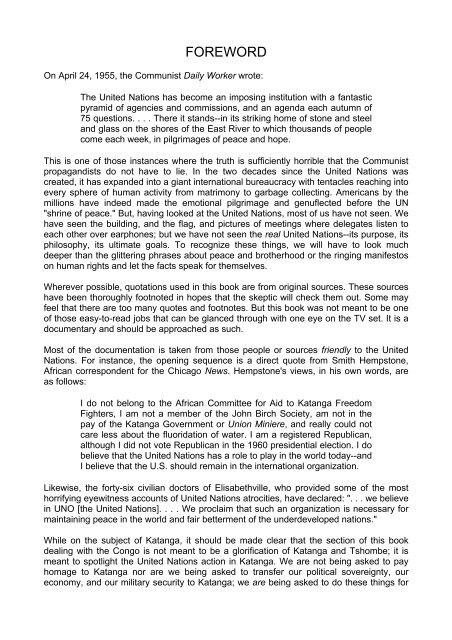
![Robert T McQuaid [rtmq@stn.net] Sent: Friday, October 29, 2004 12 ...](https://img.yumpu.com/51070071/1/190x245/robert-t-mcquaid-rtmqstnnet-sent-friday-october-29-2004-12-.jpg?quality=85)
